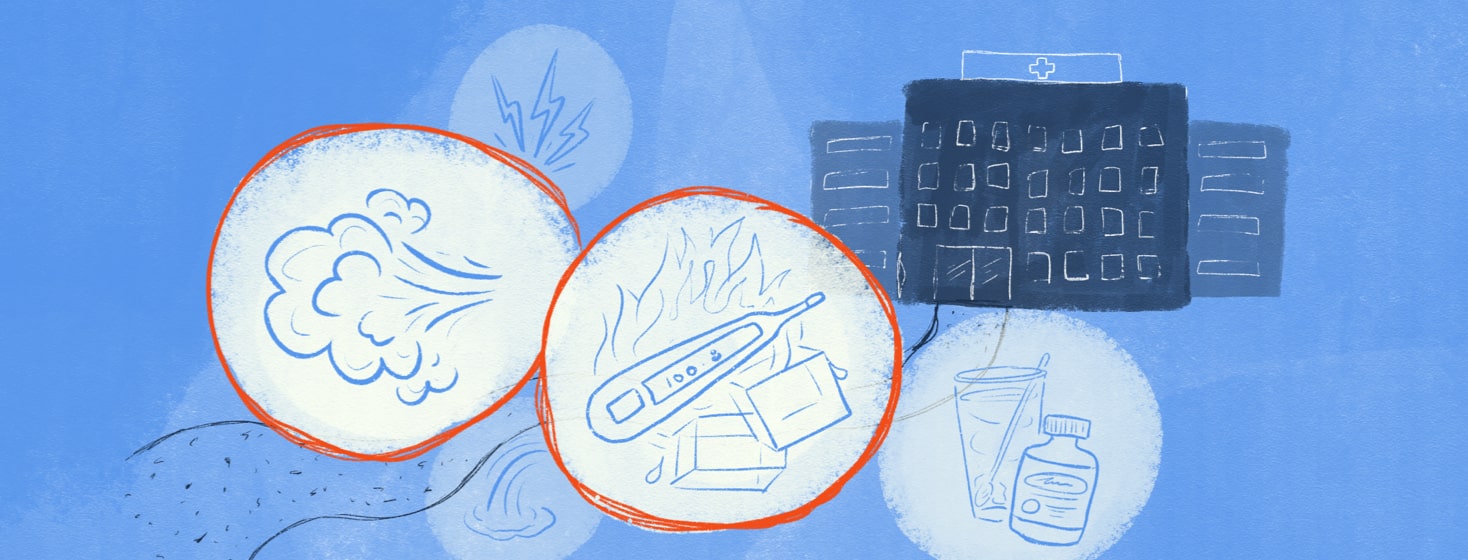How Do You Know When You Have A Blockage?
Recently, a friend called. She'd only had Crohn's disease a few months, hadn't eaten in a few days, and was now in severe abdominal pain. Should she go to the hospital...?
This is a common question amongst IBD sufferers. When is the moment your symptoms become urgent enough to require emergency care? Of course, it is always wise to check with your doctor. Sometimes they might not be around though. What is more, it often comes down to a judgment call.
Is it an intestinal blockage?
To help in this regard, I am providing some personal tips that may be of assistance. I've had 5 or 6 intestinal blockages over the years. These experiences have helped me understand the process better. The following are possible signs of a blockage. (I’m basing the information on my own experiences as well as my interactions with various doctors over 3 decades, but I’m not a medical professional so only use this as background information with that in mind.)
Unable to pass gas
This does not make polite conversation, but my doctor always insisted this was critical information. Why? If you have bad abdominal pain but cannot pass gas over an extended period of time it MAY be a sign of a blockage. I say MAY because to be designated a blockage you will likely need other symptoms. Also, once at the hospital, doctors will need to conduct further testing to confirm this is actually a blockage such as a CT scan and X-rays.
Laxatives prove ineffective
If you have taken a product such as Miralax, waited the recommended period of time, and still cannot pass gas or stool, this is another red flag. These medicines generally should work. Personally, if you're both unable to pass gas and laxatives aren't working, I’d feel quite concerned.
Fever and chills
Sometimes during an obstruction, you will have severe fevers and/or chills. This is another possible sign of an obstruction. A few times I even cycled back and forth between these 2 states rapidly. Of course, this can also be a sign of other ailments such as the flu, so you would certainly need this in conjunction with other symptoms from this list to have a blockage.
Significantly worse abdominal pain
Bad pain that doesn't seem to go away is a hallmark sign of a blockage. In fact, this is very often a necessity. However, pain in and of itself isn’t enough to have a blockage. Many Crohn’s patients have abdominal pain regularly. Blockage pain generally is worse than typical abdominal discomfort. It may not go away either like regular abdominal pain, even after a considerable period of time. If you have all of the above symptoms, you should certainly contact your doctor to discuss the possibility of going to the emergency room.
Vomiting/fecal vomiting
Vomiting is another red flag. It often happens because food cannot pass through the obstructed part of the intestine and comes back up. As for fecal vomiting, which I had twice, it means vomiting up excrement that cannot pass through your intestine. This is a very strong sign that you likely have a gastrointestinal obstruction.
Treating blockages with Crohn's disease
If you have severe abdominal pain, a telltale sign of a problem, in conjunction with one or more of these other symptoms, it is certainly possible you’re having an intestinal blockage. Consult with your doctor at this point, since a blockage generally requires emergency care. At a hospital, you will be given tests and possibly surgical intervention.
Fortunately, some blockages clear up on their own (as have most of mine). That being said, you should still go to the hospital and get treated, since blockages are serious health matters. For example, in the event you don’t need surgery, your medical team may need to put you on steroids, antibiotics, and/or pump out the contents of your gut via NG Tube.
Have you had an intestinal blockage? How could you tell? Thanks for reading. I look forward to your comments below.

Join the conversation